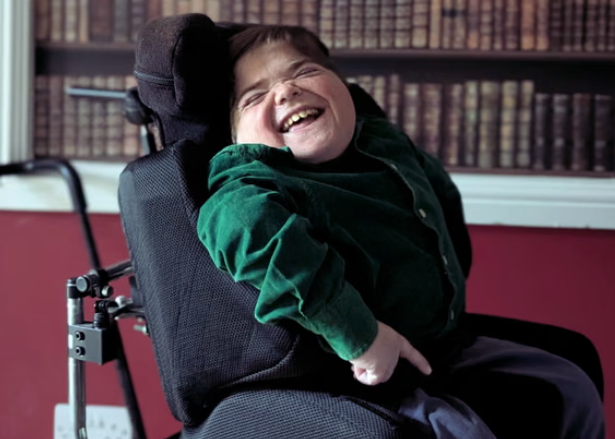On Friday 4 July, as the bells of St Paul’s in Chippenham rang out, mourners gathered to remember a remarkable young man. Jonathan Bryan was 19, and had achieved more than most in a lifetime. He was a campaigner for disability rights who had already set up a charity; he was a published author and poet praised by the Royal Family.
Such accolades would be impressive in ordinary circumstances. They were extraordinary for someone who, due to severe cerebral palsy, could not walk, hold a pen or speak.
Jonathan’s story lit up newsrooms and palace corridors. Princes William and Harry met him. So did interviewers at Sky News, This Morning, and nearly every British tabloid. They marvelled at the stunning written eloquence and literary ability of this non-verbal boy. The Guardian described him as someone who “confounded the limited expectations” often attached to those with profound and multiple learning difficulties. The BBC said he had “changed countless lives”.
His achievements were, to many, nothing short of miraculous.
Aged seven, Jonathan’s school in Wiltshire dismissed the idea he might learn to read or write. So, his mother, Chantal, withdrew him. With her help, he learned to communicate letter by letter, using a board held up by a facilitator and the movement of his eyes.
By nine, he was deploying words like “myriad”, “custodian”, and “bequeath”. At 12, his first book — a memoir — sold 16,000 copies and was promoted by the UK government. He wrote poetry that could be read backwards as well as forwards, and prose infused with the same Anglican faith as his vicar father, Christopher. At the time of his death, he was studying creative writing at Bath Spa University.
“Being able to communicate in my own words completely transformed my life,” he said in 2024. And few seemed to doubt him. By then, US Health Secretary Robert F. Kennedy Jr had celebrated a variant of his technique, known as “Facilitated Communication”, while Nature — the world’s most respected science journal — had published testimony from non-speaking people using it.
Today, it’s practised and promoted in both Britain and America, as well as across Europe. Yet few have considered an uncomfortable possibility: that Jonathan Bryan may never have been communicating in his own words at all.
Emma* worked as a carer for Jonathan three years ago. She lasted six months before resigning.
Hello! Sorry to interrupt.
Reports like this demand weeks of research, writing and editing — and paid subscriptions are what make that possible. So to read the rest, you'll need to take one out.
We know it's a pain, which is why we keep as many stories free as possible. But as a small, independent outlet, we can't afford to do that all the time.
What we can do, however, is offer you a tasty discount: 75% off three months — that’s just £1.87 a month.
And if that’s still too much, get in touch. We don't want to exclude anyone.
“It was very obvious from my first day that Jonathan wasn’t able to communicate,” she says. “I saw no evidence of it during any of my 12-hour shifts.”
Emma, who had worked with non-verbal people before, struggled to reconcile what she observed. “It was never him making the decisions,” she says.
